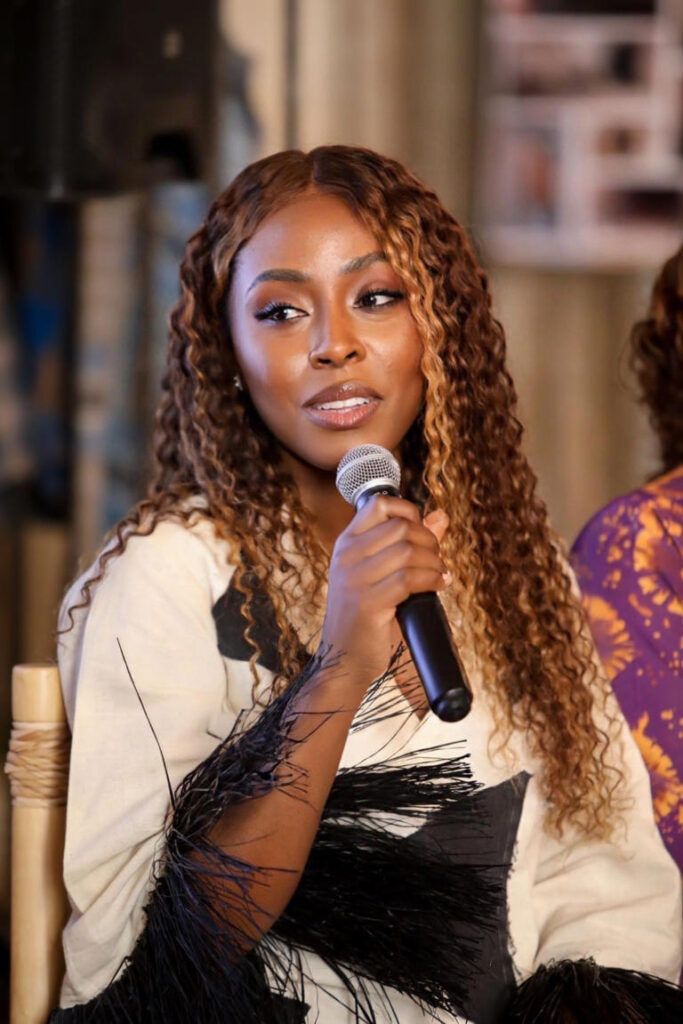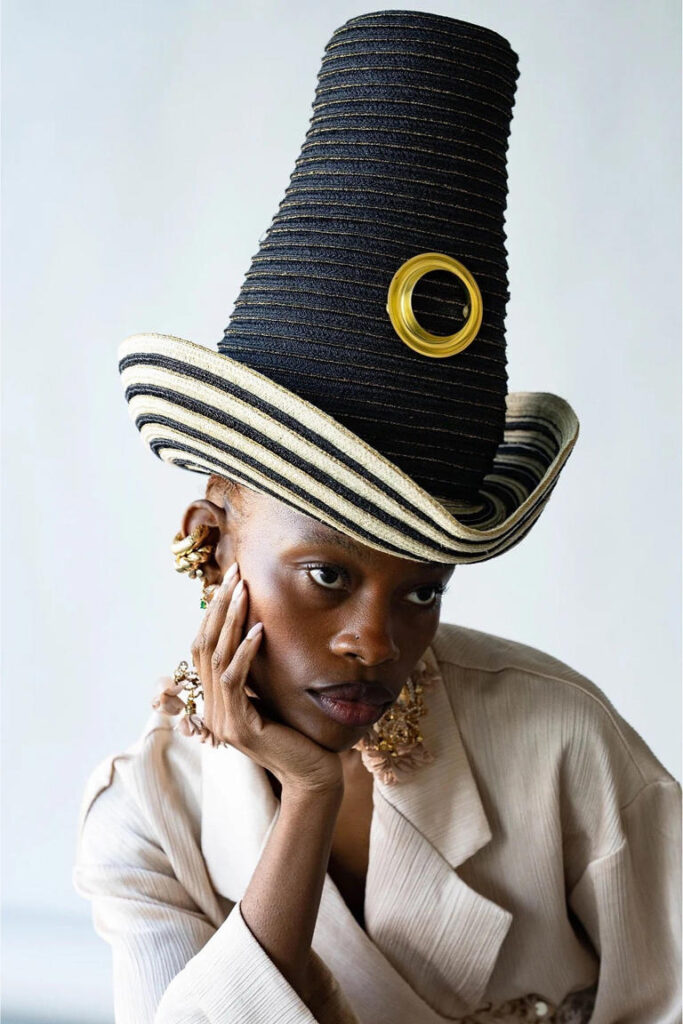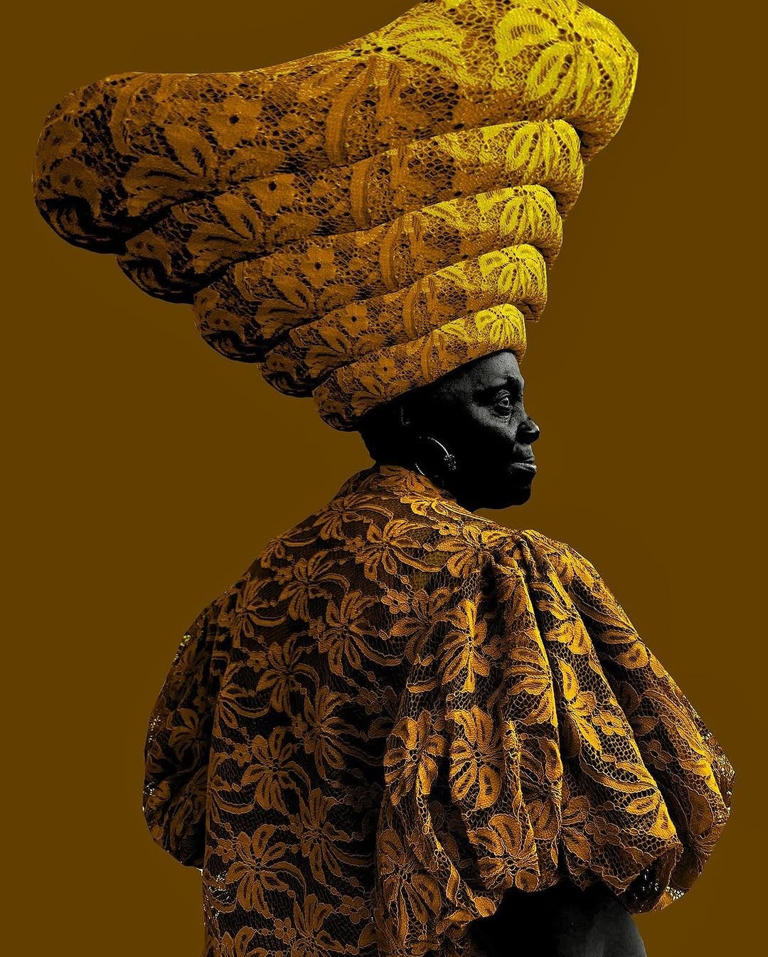African fashion is no longer a quiet whisper in the global style dialogue—it’s a booming anthem, thanks to visionaries like Idelle Taye.
The Cameroon-born founder of Guzangs, Taye is stitching Africa’s rich tapestry of fashion into the global consciousness, proving that the continent is an active player shaping the industry’s future.
Taye’s journey from admiring her mother’s glamorous “fashion moments” in Central Africa to launching Guzangs in 2020 is a story of passion meeting purpose.
“Growing up, fashion wasn’t just clothing—it was art, culture, and identity,” she tells Essence. “With Guzangs, I wanted to celebrate African fashion in all its diversity and modernity, beyond the stereotypes of wax prints or token representation.”
Redefining African Fashion

Taye’s platform, Guzangs, is more than a showcase—it’s a movement. By promoting designers like South Africa’s Maxhosa Africa or Cameroon’s Hertunba, Taye connects them with global opportunities such as exhibitions and textile festivals like XTANT in Mallorca. Her mission is clear: African fashion is not monolithic but a kaleidoscope of cultures, textures, and innovation.
“Africa is home to 54 countries, each with unique styles,” she explains. “From flowing kaftans in North Africa to vibrant hues in West Africa and the avant-garde reimagining of traditional methods, there’s so much to offer.”
Breaking Barriers and Building Bridges

Despite its growing global presence, African fashion faces challenges. Taye points to high shipping costs, limited intercontinental trade, and societal undervaluation of creative industries. Yet, she remains undeterred. Through Guzangs, she’s building an ecosystem where African designers feel seen, supported, and celebrated.
“When we feature designers, their collections often sell out,” Taye shares. “That kind of impact drives us to push boundaries further.”
A Global Stage for Africa
Taye’s advocacy comes at a pivotal time. Museums and fashion capitals are spotlighting Africa with exhibitions like Africa Fashion at London’s Victoria & Albert Museum. Meanwhile, African cities like Lagos and Dakar are staking their claim as vibrant fashion hubs.
For Taye, the ultimate goal is integration. “African fashion shouldn’t just be a niche—it’s global fashion,” she asserts. “We’re players, not just participants.”
A Future Sewn With Hope

Taye’s hopes for the industry are ambitious but achievable.
“I want African fashion to be as synonymous with innovation and luxury as European fashion houses,” she says.
With platforms like Guzangs leading the charge, the narrative of African fashion is no longer about potential—it’s about prominence.
